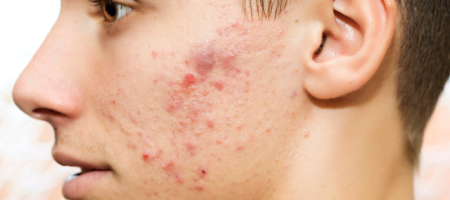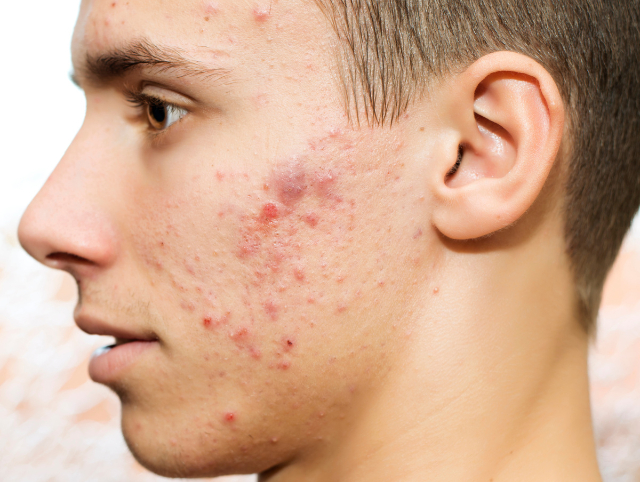ACNE

Acne is a skin condition that occurs when a hair follicle and its associated oil (sebaceous) gland become blocked and inflamed.
This provides an ideal environment for bacteria to grow and cause the skin to become irritated, red and tender.
Symptoms
Blackheads, whiteheads, pimples and cysts that develop on the face, neck, back, chest and shoulders.
Causes
Acne can be caused by a range of factors including hormonal changes. As such, it is more common in teenagers after puberty and can sometimes persist into adulthood. It can also be exacerbated in some cases by greasy and occlusive cosmetics, including some moisturisers and sunscreens.
Treatments
For mild to moderate acne, over the counter products from pharmacies can be very effective – we encourage you to speak to your GP or pharmacist to find out which treatment might be the most useful for you.
For moderate acne, your GP may prescribe antibiotics and/or prescription topical treatments.
For severe acne, your GP may consider referring you to a dermatologist for specialist assessment and further treatment. Active treatment of acne is recommended to help prevent progression to scarring, which can result in long term changes to the skin.
Potential treatments that a dermatologist might recommend include:
- skin care advice
- prescription creams
- blood tests
- prescription tablets, including antibiotics or a more potent medication based on Vitamin A such as isotretinoin.
Resources
For further information, you can visit the following resources:


